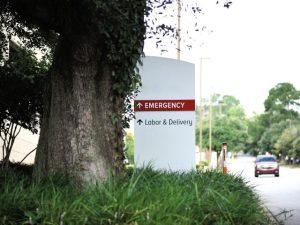Throughout history the labor and delivery of pregnant women, several transitions have been observed. One of the biggest transitions has been the location of where women have chosen to deliver.
In the early 1900s, women typically delivered at home and it was considered the “norm”. Changes in modern medicine shifted labor and delivery to occur more in a hospital setting, making this the new founded “norm”.
There have always been peaks or trends with interest in home deliveries, but never a significant overall shift back that direction.
Like many things, the timeframe around COVID pandemic created alterations in processes and perceptions. During the COVID pandemic, the healthcare circulating around labor and delivery saw numerous health care transitions.
There were visitor restrictions put into place with family, friends, and even with birth partners. Care guidelines with couplet care, breastfeeding, and skin to skin, saw multiple changes. Anxiety, depression, and fear all had significantly increased in pregnant women.
Many of these health care transitions being seen or heard led to additional pregnancy concerns. Women battled the thought of laboring and giving birth without their loved ones. Women had concerns regarding themselves or their new bundle of joy possibly being exposed to COVID while in the inpatient setting.
During the COVID health crisis home deliveries and freestanding birth centers saw one of the biggest peaks since the early 1900s. This significant shift has left many wondering if the peak will continue to grow or if there will be a distinct trend back in the other direction again.









